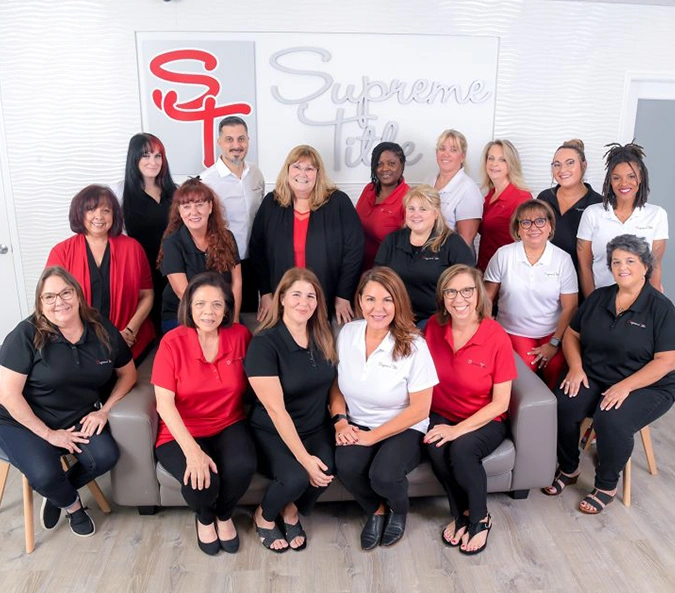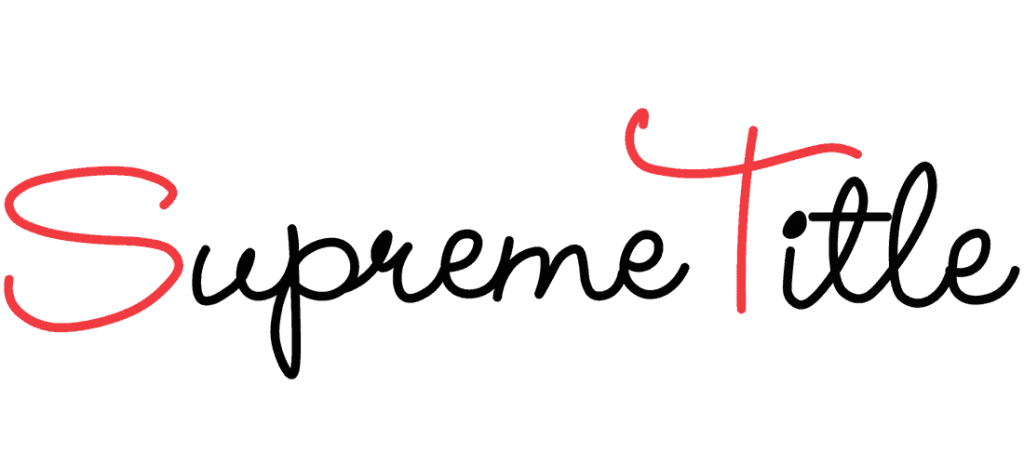Escrow accounts, title insurance, home inspections, title commitments, and more — so many crucial aspects of purchasing a home! What do they all mean? How can you make sure you’re not missing anything during the transaction process? Supreme Title is here as your partner to keep you informed of the many details you’ll need to know when purchasing your perfect home. The title commitment is one of the most important documents in closing because it details what is or is not covered in the title insurance policy. Not reading through this can leave the buyer exposed to potential legal challenges.
What is a Title Commitment?
After you’ve signed a purchase and sale agreement on your new home (congratulations!), you’ll be given a packet of information from your title company called a ‘title commitment’. Certain states may call this document a ‘title binder’ or ‘preliminary title report’, but each serves the same purpose. Essentially, the title commitment is the title company’s promise to issue clear title and provide title insurance after the closing on the purchase of your new home. However, knowing what the title commitment is and knowing how to read it are mutually exclusive concepts.
How Do I Read a Title Commitment?
There are three sections to a title commitment.
Schedule A. in a title commitment lists the ‘effective date’ – or the date the title search was executed – which is updated right before closing to make sure there are no additional requirements necessary before disbursing funds. Then, Schedule A will list who is insured under the policy. If it is a cash deal, a buyer will be listed and they’ll be insured for the owner’s policy of the purchase price. If they’re obtaining a loan, you’ll see a lender’s policy as well, which covers the lender’s interest in the amount of the loan. Consider this the “who, what, where and how much” section of the document.
After listing the insured parties on the transaction, you’ll find the type of title they’ll receive. Most commonly, this will be a “fee simple” title. This means the new owner completely owns the property and any other buildings or structures (garages, barns, sheds, etc.) on the property.
Just below the type of title, you’ll find the title vesting. This shows who is in title; in other words, who owns or is selling the property at the time of the title search. Following this you’ll find the legal description of the property. This section is pretty straight forward, but be certain to confirm any amounts and names listed here.
Schedule B.1 is the second section of a title commitment. This is the requirements page, and lists any necessary tasks that need to be completed and cleared before the title can be issued. For example, this is where you’ll find if the seller has a mortgage that needs to be paid, taxes owed, liens against the property that need to be paid, or if there’s a homeowner’s association with the property that requires certain fees be satisfied.
Schedule B.1 basically summarizes the issues that need to be cleared in order to submit a clear title. If any of the listed requirements cannot be satisfied, escrow will be effected and the buyer should speak with the escrow officer immediately.
The 3rd section in the title agreement is Schedule B.2. This is the ‘exceptions’ page; a list of items not covered in the title insurance policy. Exceptions include items that will remain with the property from owner to owner and will never leave the property, such as a power company’s right to hang power lines across the property.
Another example of an exception – also called an ‘exclusion’ – is some form of governmental right to the property. Instances could include mineral and water rights, any homeowner associations’ restrictions or any claim arising from bankruptcy.
Finding the right title company to help you discern this and other crucial documents is a key part of a smooth process to homeownership. Supreme Title is a trusted source for your title needs. If you have any questions about title commitments or related topics, reach out to any of our six locations today.






